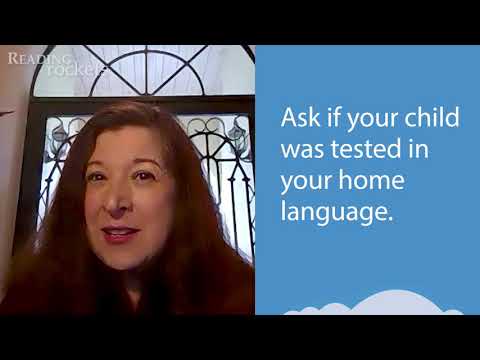Special Education and Your Child: Resources for Multilingual Families

What do you need to know about special education and your rights in the special education process? Learn more from these resources. Many are available in different languages.
Featured Articles
Related Video
Recommended Resources
Center for Parent Information and Resources
This website has great bilingual information for families and educators about special education and specific disabilities. Highlights include:
- Key Terms to Know in Special Education
- Categories of Disability Under IDEA
- Fact Sheets on Specific Disabilities
- All About the IEP
Understood.org: Bilingual Resources for Families

For additional information about learning and attention issues in English and Spanish, visit Understood, a social impact organization dedicated to helping the 1 in 5 Americans who learn and think differently thrive at home, in school, at work, and in life.
Did you know...?
Learning and attention issues are brain-based difficulties in reading, writing, math, organization, focus, listening comprehension, social skills, motor skills or a combination of these. They often run in families.
Learn more about the one in five children who has a learning or attention issue from the following report:
- The State of Learning Disabilities: Understanding the 1 in 5
- Report Summary
- Infographic: The State of Learning Disabilities in the U.S. (English and Spanish)
Understood.org: Bilingual Resources for Families

For additional information about learning and attention issues in English and Spanish, visit Understood, a social impact organization dedicated to helping the 1 in 5 Americans who learn and think differently thrive at home, in school, at work, and in life.
Note for Parents
Some challenges may look similar and you may wonder how to tell the difference between different kinds of issues. Learn what you can and pay attention to your child's behavior and emotional / physical health. Keep a record of important changes to health, diet, medication, or school situations.
Before taking big steps such as paying for extra services, changing your child's school, or starting medication, be sure to consult with professionals you trust: your child's teacher, doctor, and school counselor are an important place to start. If you need interpretation services, you have a legal right to ask the school for an interpreter. (Your child should never interpret for you at school.)








